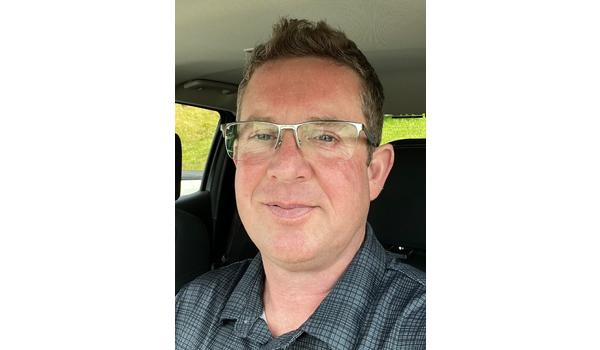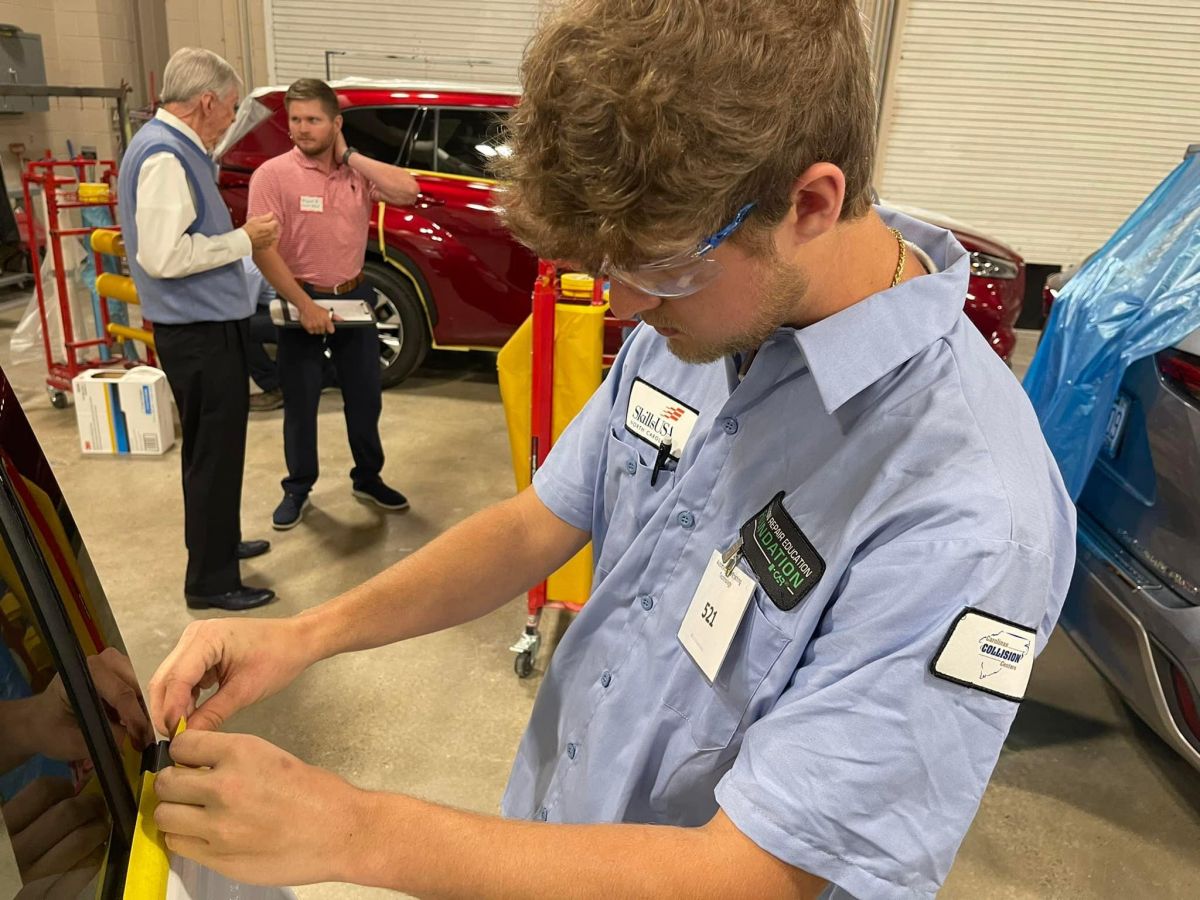For a few decades, I was involved a little in the trade school committees in my area, but over the last two years, I have become more invested. The sad truth is there are not enough collision centers participating in their local committees. Committees meet once or, at the most, twice a year. For a shop to not be involved in such an important program once or twice annually is baffling to me.
I currently sit on four high school and two post-secondary committees. I will tell you, if I can fit that into my schedule, there is no reason why every shop couldn’t at least get involved with one school in their area.
A little background on myself: I am a second-generation technician/shop owner who moved to the sales side of the collision industry 15 years ago. I have been with Blue Ridge Color Company (BRCC) now for 12 years. We host and provide classes and training throughout our footprint from our four training centers. I am also a board member with the Carolinas Collision Association (CCA) and sit on the Trade School Committee. Through BRCC and the CCA, I have been blessed with the ability to help the industry more now than ever before. I spend many hours participating in programs, ultimately for the preservation and betterment of an industry that has provided a great life for me.
Instructors need our support. They are sometimes unaware of what is current in the industry. Although a valuable resource, solely relying on I-CAR’s curriculum as a template and their own experience is not enough to prepare their students for the industry.
The instructors have the ability to adapt their classes to what collision centers truly need. They can only get that information from industry leaders participating on the committees. They need shop owners, estimators, veteran technicians, vendors and manufacturers to be active in their programs and volunteer for the advisory committees.
We are the industry leaders, and we need to ensure the schools are aware of the needs of the industry. There are too many young techs graduating with the false premise they have it all figured out. They know a little about a lot and not a lot about a little.
Entry level technicians do not need to know tidbits of every aspect of collision repair. To add value to a reputable shop on day one, an entry level tech should be able to disassemble and reassemble, load a parts cart while meticulously labeling all bags and parts, pre- and post-scan, and prep a vehicle for paint, masking and maybe minor cosmetic repairs. The rest will come in time and will be learned through apprenticeship at the shop.
Another issue for trade schools is not having the proper tools and equipment to teach at today’s standards. Our involvement through committees allows instructors to stay up to date with the latest and greatest industry trends. The other issue is getting the approval for said tools to be put in the budget. An instructor on their own is less likely to get tool and equipment approval than a unified, strong committee all advocating for the needs of the program.
Trade school committee success does not solely fall on the participation of the shops. It is imperative the schools and instructors reach out to local collision centers. I have seen firsthand where shops are not informed of meetings and in some cases don’t even know a program exists in their area.
These schools are the lifeline for the future of our industry. We ALL have to do better. Instructors need to get out there and promote your programs. Shops, please check in with your local schools -- ask what you can do to support their programs. Create a co-op program, send technicians to the school to do workshops with the students, go speak to students about the industry, etc.
I hear this all the time from shops: “That school doesn’t teach them what they need to know," “The students aren’t ready when they get out," “They don’t have the proper equipment at that school.” On the flip side, I hear this from the schools and students: “It wasn’t what I expected when I started my job," “The local shops will not support the school” and “We do not have the proper tools to teach with."
I believe if the shops and schools start working together, you will all benefit. Please support your local collision repair trade school advisory committees!
 Avery Canady has served the collision repair industry for three decades. As a child, most days were spent at his father’s body shop. He started out sweeping floors, became a technician, estimator, manager and eventually owned the small family business. After selling the shop, Canady moved over to the distribution side of the industry and has been employed with Blue Ridge Color Company for 12 years. He is a proud board member with the Carolinas Collision Association and also serves on the CCA Trade School Committee.
Avery Canady has served the collision repair industry for three decades. As a child, most days were spent at his father’s body shop. He started out sweeping floors, became a technician, estimator, manager and eventually owned the small family business. After selling the shop, Canady moved over to the distribution side of the industry and has been employed with Blue Ridge Color Company for 12 years. He is a proud board member with the Carolinas Collision Association and also serves on the CCA Trade School Committee.














